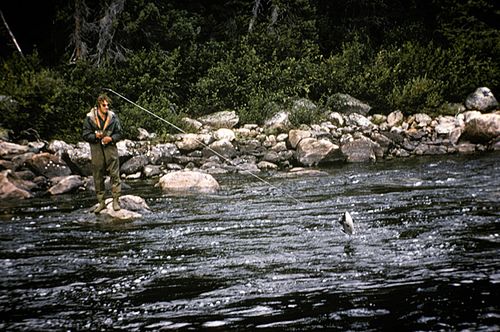by Isaac Hunter
Can anyone please tell me the truth?
A major controversy within the outdoor community these days is churning around the farmed salmon industry.
Big money and powerful interests keep the issue roiled.
Aquaculture in Canada is a more than $2 billion industry that has become the only source of year-round employment in many coastal communities. Salmon farming is a large part of the industry.

Environmental alarmists would have you believe that salmon farming threatens wild fish stocks and produces food that may be unhealthy and laden with heavy metals and chemicals.
Health Canada, Agriculture Canada and the U.S. Institute of Medicine, among others, say we should eat at least two servings of fish a week, and include salmon in a group of six fish that contain the highest levels of desirable omega-3 fats and other nutrients that provide cardio-vascular benefits. The European Food Safety Authority says there are no consistent differences between wild and farmed fish in terms of safety and nutritional contribution.
The aquaculture industry says the scare about contaminants in farmed salmon is misleading and based largely on statistical studies that show contaminate levels as inconsequential.
Enter the Atlantic Salmon sports fishing fraternity. Comprised largely of wealthy, influential and powerful folks, their bible, the Atlantic Salmon Journal, constantly decries what they believe is salmon farm pollution, environmental degradation, “bio-accumulated” chemicals, disease and concentration of larval sea lice, a parasitic threat to young salmon and other fish. Pesticides used to kill sea lice also kill crustaceans – lobsters, crabs and other important organisms in the marine ecosystem.
First started 40 years ago in Norway, Atlantic Salmon farms are now commonplace in Canada, Maine, Ireland, Scotland, Chile, the Faeroe Islands, Australia and New Zealand. It’s now truly big business, a business that claims to be improving, working hard to overcome the difficulties and problems inherent in farming wild salmon.
Both sides are well represented by effective, persistent lobby groups. Certainly Atlantic Salmon stocks have dwindled in the past, although recent history may indicate something of a comeback. Restoration of once polluted, damned Atlantic coastal spawning rivers is certainly helping.
But who’s telling me the truth? Is there, perhaps, no one simple “truth”?
I really need to know. Because, in a long and fortuitous life, I’ve known the sublime joy of drifting a fly over salmon on wilderness rivers.
My bucket list is short. At the top – one more river to fish. Will there still be a salmon in it when I get there?
Photo © John T. Fowler 2011

